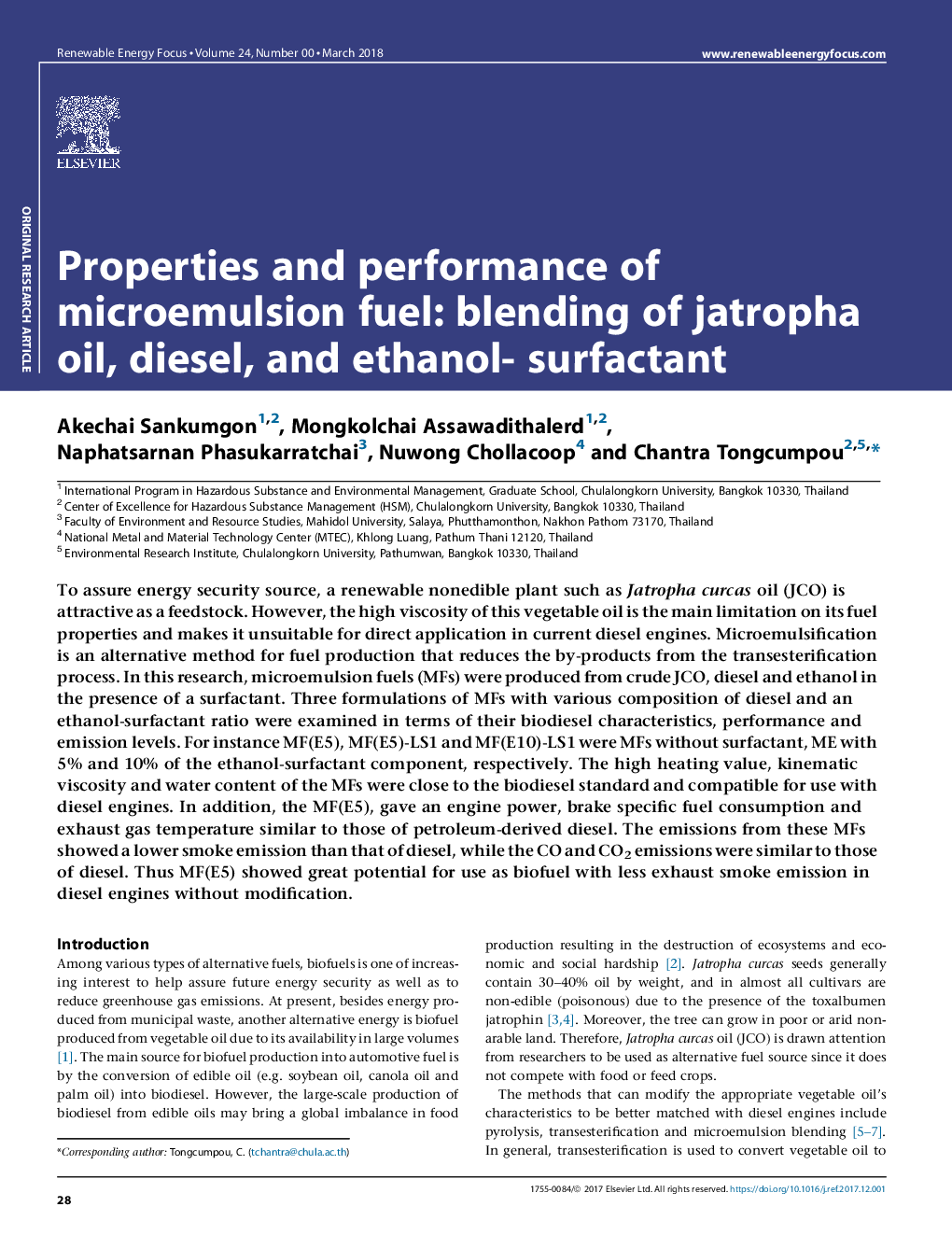| Article ID | Journal | Published Year | Pages | File Type |
|---|---|---|---|---|
| 8110149 | Renewable Energy Focus | 2018 | 5 Pages |
Abstract
To assure energy security source, a renewable nonedible plant such as Jatropha curcas oil (JCO) is attractive as a feedstock. However, the high viscosity of this vegetable oil is the main limitation on its fuel properties and makes it unsuitable for direct application in current diesel engines. Microemulsification is an alternative method for fuel production that reduces the by-products from the transesterification process. In this research, microemulsion fuels (MFs) were produced from crude JCO, diesel and ethanol in the presence of a surfactant. Three formulations of MFs with various composition of diesel and an ethanol-surfactant ratio were examined in terms of their biodiesel characteristics, performance and emission levels. For instance MF(E5), MF(E5)-LS1 and MF(E10)-LS1 were MFs without surfactant, ME with 5% and 10% of the ethanol-surfactant component, respectively. The high heating value, kinematic viscosity and water content of the MFs were close to the biodiesel standard and compatible for use with diesel engines. In addition, the MF(E5), gave an engine power, brake specific fuel consumption and exhaust gas temperature similar to those of petroleum-derived diesel. The emissions from these MFs showed a lower smoke emission than that of diesel, while the CO and CO2 emissions were similar to those of diesel. Thus MF(E5) showed great potential for use as biofuel with less exhaust smoke emission in diesel engines without modification.
Related Topics
Physical Sciences and Engineering
Energy
Renewable Energy, Sustainability and the Environment
Authors
Akechai Sankumgon, Mongkolchai Assawadithalerd, Naphatsarnan Phasukarratchai, Nuwong Chollacoop, Chantra Tongcumpou,
